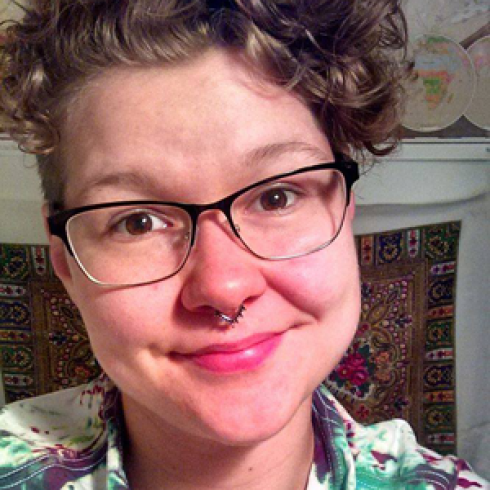Taal is krachtig, het verbindt en isoleert. (Language is powerful, it connects and isolates.)
How much do you judge someone based on their language?
When you’re having a conversation with someone on public transportation, in class, or in line for a coffee, how much of your opinion of them is determined by how well they speak?
If I’ve learned anything during my time in a country where English isn’t the primary language, it is to be considerate, patient, and non-judgmental on the basis of language and grammar. In my case, I’m just grateful that people are kind and willing to speak English. (For those of you from the United States or if you have visited, “you’re in America! Speak English!” is an anger-laden phrase you’ll hear often. This is usually directed towards immigrants).
Fortunately, no one has yelled at me “you’re in the Netherlands! Speak Dutch!” (At least, I don't think they have. It would probably be in Dutch, if that's the case...)
As someone who is learning Dutch, I can relate to not having the words you want to say, not knowing how to properly structure phrases, or the fun – and danger – of mispronunciation. I’ve had a handful of Dutchies and expats tell me that learning the Dutch language is fruitless: “There’s no point”, “but everyone speaks English”, “it’s more effort than it’s worth”, “I’ve been here three years and only learned ‘een biertje, alsjeblief’”. Sometimes they would just laugh or give a satirical “good luck”.
While abroad, I’ve conducted interviews with 11 native Dutch speakers and 1 native French speaker for my cross-cultural research project. Obviously, my lack of knowledge in Dutch and French made it impossible to meet them at their most comfortable language. Taking note of this, I tried to offer every avenue for full understanding. We had Google translate open if the word wasn’t coming to mind, kept a pen and paper to jot down Dutch words that had no direct translation, and gave the option to see a print out of questions rather than just listening. Many of these adaptations were conceived in the moments of possible miscommunication and I’m grateful to the people I worked with to provide these suggestions and patience. But there’s always more we can do.
Being surrounded by non-native English speakers has been extremely important in constructing how I interpret and use language. I’ve consciously tried to provide more avenues for understanding, like using more gestures, reducing specialized vocabulary (unless they preferred I didn’t so they could work on their English) and checking in on understanding. Most importantly, I’ve become more conscious of the tendency to discriminate against intelligence on the basis of language.
In the English-dominated world of the internet, this language-intelligence discrimination is something to keep in mind.
Personally, I don’t trek on Tumblr. The only reason I know anything about the Tumblr community or its contents is because I have loving Tumblr-active friends who keep me informed. That, and there are plenty of instances where Tumblr users are the butt of a joke. You know, the oversensitive-content/trigger-warning-using-politically-correct-liberal-goody-goody-no-fun-“back-in-my-day”-damn-Milennials rhetoric. However, something that Tumblr does better than any social media platform is dissect language, quick to point out semantical differences. On sites like Tumblr, it’s even more important to be conscious of how dominating English is, and the experiences that non-native English speakers have while participating on these platforms.
To sum up my thoughts on the subject: Be patient, be kind, (try your best to) be non-judgmental. Lastly, if you’re studying abroad in a country where English isn’t the primary language, I recommend trying to learn some basics: hello, goodbye, please, thank you, excuse me. Not only will it help you, I found that people were more kind to me if I started our interaction in Dutch (or Italian when I was in Italy) than if I unabashedly began in English.
Tot ziens!

Shana Pike
Hello folks! I'm Shana, a small-town tree-hugger with a big appetite for experiences, culture, and knowledge. I'm an undergrad student of Psychology and Gender Studies, yearning to understand my surroundings better each day. Welcome to my conglomeration of ideas and passions, all nourished by traveling, friends, spinach, and coffee.







